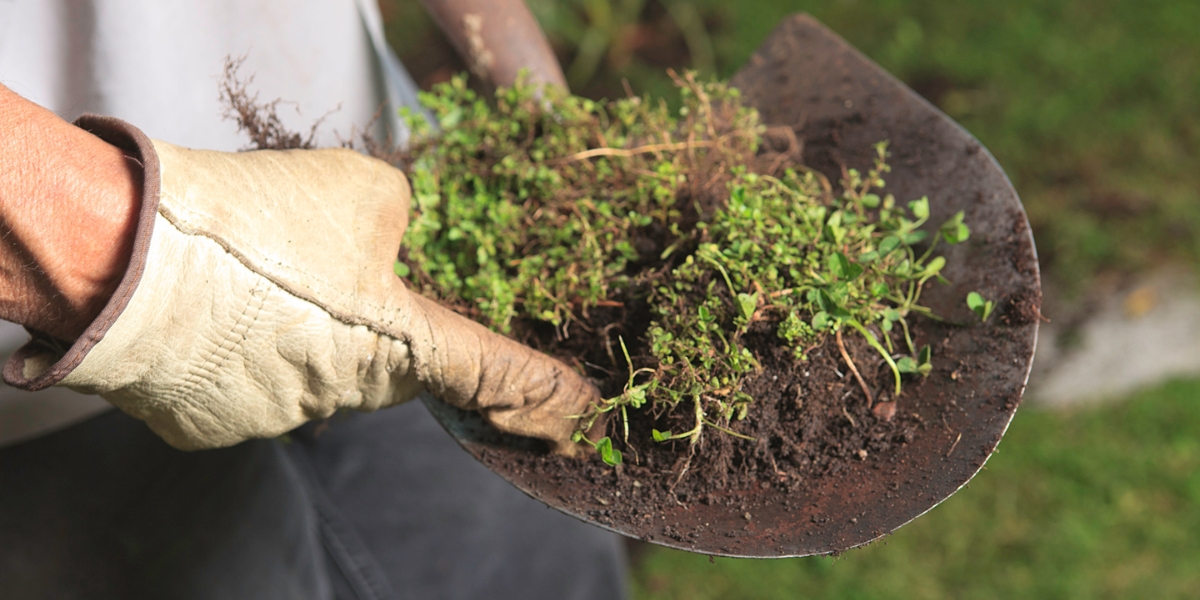Did My Dog Eat Weed?
It happens more commonly than you think—your curious canine companion might stumble upon and consume marijuana without your knowledge. Whether it’s an edible left within reach or something found on a walk, dogs seem to find most forms of weed appealing. If your pup ingests THC, you may notice pretty obvious symptoms of poisoning. In fact, many pet parents have no idea where their dog found the marijuana, but the signs can be clear.
If you’re wondering about what happens when your dog accidentally eats marijuana, this video provides helpful insights by Dr. Lera: (What Happens If Your Dog Ingests Marijuana Accidentally?).
With THC-tourism booming and recreational marijuana legal in more places than ever, the chances of pets coming into contact with it are on the rise. According to the Animal Poison Control Center (APCC), there’s been a 765% increase in reported cases of accidental marijuana ingestion by dogs since 2019. While it’s fortunate that THC ingestion is rarely life-threatening, it can still cause harmful effects. This is because dogs have cannabinoid receptors in their brains that make them more vulnerable to intoxication than humans. Symptoms like lethargy, drooling and wobbliness can appear within 1 to 3 hours and often worsen progressively.
The growing accessibility of marijuana in both legal and medical capacities has resulted in accidental ingestion becoming a common problem. Some dogs, especially those who like to eat everything they find are at a greater risk if marijuana isn’t stored safely. It’s vital to recognize the warning signs that indicate the need for veterinary attention. While a trip to the vet is usually necessary quick action from pet owners can prevent toxicity from worsening.
Although this situation might seem scary, understanding what to do can help. Whether you or someone in your family uses cannabis products, be prepared to act. Knowing the symptoms and having a plan in place ensures your pet gets the help they need. Marijuana toxicity in dogs is an issue that any pet parent should be aware of, no matter how cautious they are.
Is Weed Bad For Dogs?
Eating marijuana products that contain THC can be dangerous for your dog and may cause serious effects. While it might not seem bad at first, dogs that consume weed often end up feeling sick or out of control. If your dog ate marijuana, they could experience disorienting symptoms that may even seem downright scary.
The size of your dog matters when it comes to weed ingestion—a small dog that eats a lot of THC-infused products could face life-threatening issues. For instance, if your dog finds and consumes an entire infused chocolate bar, the consequences could be severe.
The American Veterinary Medical Association (AVMA) warns that dogs exposed to edibles like brownies, gummies, oils, or chocolate might suffer from additional toxicity due to harmful ingredients. Dr. Rena Carlson explains that while low doses of THC may not kill a dog, some cases result in serious complications, like difficulty breathing or aspiration, which can turn deadly.
Dogs often seek out palatable products, using their great sense of smell to find enticing items in cabinets or on counters. This can lead to dogs eating harmful foods in large amounts, including those mixed with toxic compounds like THC.
Prevention is key, as Dr. Carlson stresses. Keep all marijuana products on high shelves or locked away, where pets cannot access them. Dogs are naturally curious and may nudge open cabinets or chew through packaging to reach something they shouldn’t. Walks can also be risky; a dog may wander and eat discarded items. Keeping your dog on a leash can help prevent exposure to these dangers.
Some pet owners turn to CBD products for treating their dog’s anxiety or pain, but little is known about the safety of these products for animals. Since dogs have different receptor systems, THC and CBD can affect them uniquely. Always consult a veterinarian to understand the right treatment and control the concentrations of any product you plan to use. Exercising caution is the best way to protect your furry friend from unnecessary risks.
How Much Weed is Toxic to Dogs?
Dr. Carlson stresses that prevention is key, as many owners let dogs access harmful items without realizing the risks. While some people treat stress or pain with CBD dog treats, there is little known about the safety or benefits of these products for pets. Dogs have a unique nervous system, where THC and CBD compounds bind and react differently, making proper control of concentrations essential. Always consult a veterinarian for advice before choosing alternative medicine to ensure your pet’s well-being.
Will eating weed get your dog high?
Yes, dogs can get high if they ingest weed or are exposed to it through secondhand smoke. However, the symptoms they experience are very different from what humans feel. While THC may be pleasant for people, dogs lack the same self-control and may eat an entire stash or everything at once, whether it’s edible or plain weed. This often leads to profound effects, especially in dogs with underlying health issues. Even a small amount can add up, making an overdose likely and potentially causing serious consequences.
With two dozen states legalizing marijuana and products like delta-8 THC growing in popularity, exposure risks for dogs are increasing. Organizations like the ASPCA report rising calls to poison hotlines as more owners incorporate weed into their daily lives. Acting quickly is essential to prevent worsening symptoms, especially as effects may progress without intervention.
Signs Your Dog Ate Weed
If your dog has eaten weed, it’s important to monitor them closely for any signs. Symptoms can vary based on the dose and your dog’s body size, so always keep a watchful eye. While some dogs might show mild signs of being sleepy or wobbly, others could experience more severe issues like vomiting or seizures. THC can have a pronounced effect on your dog’s central nervous system and they may not understand what’s happening. Even if the symptoms seem mild, it’s best to get veterinary care if you’re unsure.
Watch for sudden or strange changes in behavior like uncoordinated movements, dribbling urine, or low body temperature. If you notice your dog’s gums turning pale or grey, or if they have difficulty breathing, you should act quickly. In some cases, higher doses of weed can lead to serious issues like low blood pressure, heart rate problems, or even seizures. These situations may require emergency medical care. If in doubt, don’t wait—contact your veterinarian immediately.
Common symptoms to watch for:
- Sleepiness or lethargy
- Uncoordinated movements or abnormal walking
- Excessive vomiting
- Dilated pupils
- Dribbling urine
- Low body temperature (check rectal)
- Seizures
- Breathing problems
It’s always better to be safe and seek professional help rather than wait and risk your dog’s health. If you’re unsure about the severity of the weed your dog ate, contacting a vet is always the best decision.
How Long Do Symptoms Take to Show and Last?
After marijuana ingestion, most symptoms start within 30 to 90 minutes and can become progressively worse over the next few hours. In the vast majority of cases, the effects wear off without specific treatment within 24 hours. However, if a dog consumes a large amount of weed, the symptoms can last upwards of 48 hours. Factors like the dosage and a dog’s size influence the length of time weed stays in their system.
According to Dr. Carlson, cases can vary, with some requiring vet care for days. The psychoactive compound tetrahydrocannabinol (THC) can profoundly affect a dog’s health because their brains are more sensitive to it compared to humans. Changes in regulations making marijuana more accessible have led to a rise in accidental incidents, so understanding the timeline and severity of symptoms is crucial to responding appropriately.
When Should I Get My Dog to the Vet?
If your dog is showing symptoms of THC toxicity, such as loss of consciousness or a low body temperature dropping below 99ºF, it’s time to seek professional medical care immediately. Normal body temperature for dogs is around 100-102 degrees Fahrenheit and if it falls too low, it could indicate a serious problem. In such cases, monitoring and nursing your dog at home won’t be enough, and you should take them to the vet for proper treatment.
If your dog remains sleepy and can’t wake up, don’t hesitate to seek vet care. It’s important to act early when you’re unsure about the severity of the situation. You might need professional help to properly test and manage their symptoms, as vets are trained to handle these stressful episodes in a way that ensures your pet’s comfort and well-being.
How can I help a dog after they ate weed?
1. Going to a Vet
Dogs that ingest marijuana may exhibit symptoms like unsteadiness, drooling, or excessive sleepiness. In the majority of cases, the effects of THC exposure will wear off on their own with time. However, owners must be reassuring and observe their pet closely. While some symptoms pass quickly and can be managed at home, severe complications may arise depending on the amount consumed and your pet’s size. It’s critical to know the steps to take to keep your pet safe, especially since products containing marijuana can be highly toxic to both dogs and cats.
If your dog shows severe signs like vomiting, shaking, or even seizing, don’t hesitate to seek veterinary attention. The veterinary team can assess and treat marijuana intoxication with supportive care like IV fluids or, in specific cases, medications like activated charcoal to bind substances in the GI tract. In some situations, hospitalization might be needed for monitoring or additional treatment. Contact resources like the ASPCA Animal Poison Control Center at 888-426-4435 for expert advice. Acting swiftly ensures the best outcome for your furry companion, no matter how alarming the incident may seem.
2. Treating it at Home
If your dog has eaten weed, staying calm and acting swiftly is important. Start by moving your pup to a safe, confined space where they can’t roam unsupervised. This is particularly helpful when they appear uncoordinated or have problems with their motions. Keep them warm, clean, and dry, as maintaining their body temperature is crucial. If they seem unable to swallow food or water, you may need to act faster and consider an emergency visit to the vet.
Over the next two hours, monitor for serious symptoms such as low temperature, urinary incontinence, or difficulty staying awake. Gently wake your dog every so often to check their condition. A leash can help you manage their movements, particularly if they try to walk in a fenced backyard. Keep an eye out for anything unusual and stay safe rather than sorry. Remember, it’s better to act cautiously and contact a vet if their condition worsens.
To prevent such situations in the future, ensure all products containing psychoactive substances are securely stored away from pets. Dogs can find recreational substances appealing, but even small amounts can profoundly affect their health. Take steps like limiting unsupervised access to areas where such substances might be present. These prevention strategies can minimize exposure and help your pup stay happy and healthy.
Conclusion:
If your dog has ingested weed or other toxic substances like chocolate or xylitol, it’s crucial to act quickly. While marijuana ingestion in dogs is usually not fatal, it can cause severe symptoms. Contact a veterinarian immediately to guide you through the necessary steps. Ingestion of any unfamiliar substance should not be taken lightly. Many dogs have been seen experiencing adverse effects after accidental ingestion, even though fatal cases are rare.
If you notice unusual changes in your dog’s health, such as a sudden change in their appearance or behavior, it’s essential to monitor them closely. For instance, if you notice your dog’s nose turning pink, it could be a sign of something else affecting their health. Learn more about why your dog’s nose might be turning pink to gain a deeper understanding.
FAQ’s
What happens if a dog eats weed?
If a dog eats marijuana, it may show toxic effects like lethargy, disorientation, or vomiting. In severe cases, symptoms can escalate to seizures or even a coma, requiring immediate veterinary attention. Always avoid exposing your pet to recreational drugs and monitor symptoms if you suspect they’ve ingested marijuana.
What do I do if my dog accidentally gets high?
If your dog gets high on weed, contact a vet immediately, especially if you notice unresponsiveness or other red flags. While it’s unlikely fatal, smaller dogs can be more affected, so acting quickly helps ensure they are appropriately treated for what happened.
How long will my dog be sick after eating weed?
How long your dog stays unwell after ingesting THC depends on the amount of marijuana consumed. Most mild side effects last up to two days, but larger amounts can lead to extreme consequences. Always play it safe and monitor your dog closely.
What to give your dog if they eat weed?
To help your pet, you can give activated charcoal tabs found at drug stores, as it soaks toxins in the stomach before they are absorbed. Avoid trying to induce vomiting without veterinary advice, as it may worsen symptoms instead of changing the situation.
How to treat a poisoned dog at home?
While waiting for the vet, never attempt to medicate or induce vomit in dogs. If their skin or fur is contaminated, gently wash them with mild shampoo and water, then rinse and dry thoroughly. Keep them away from other animals to avoid cross-contamination.
How long does edible high last?
The intoxicating effects of edible cannabis in dogs can start within 30 minutes to two hours, peak at around four hours, and last up to 12 hours. Some residual effects may linger for 24 hours, leaving your dog affected even the next day.








